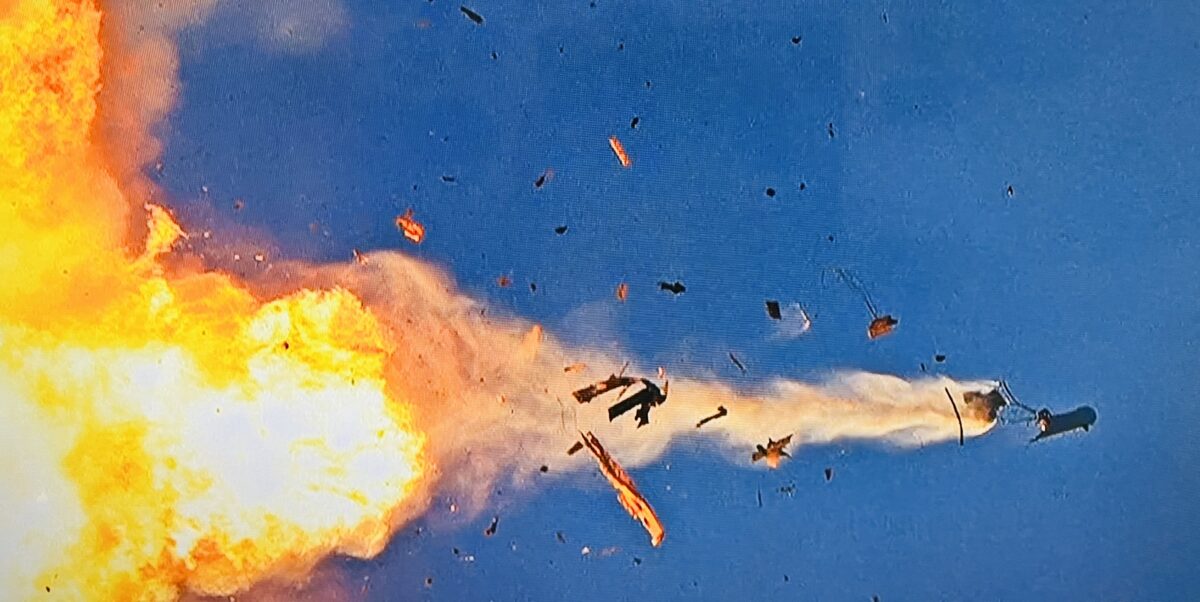The relatively limited preemptive strikes by Israel in southern Lebanon in the early hours of August 25 appear to have dealt Hezbollah, Iran’s chief proxy in the Middle East, a punishing blow. Israel went on the offensive after learning that Hezbollah was on the cusp of launching a massive rocket and drone attack.
The Israeli air raids, though, are unlikely to end the current low-intensity war of attrition along the Lebanese border, which is now in its tenth month. Since October, Hezbollah has attacked Israel on a daily basis in solidarity with Hamas, another Iranian surrogate.
In all probability, however, Hezbollah does not seek a regional war that would devastate Lebanon, which already is burdened with a host of severe economic and political problems.
Yesterday’s round of fighting did not come as a surprise. Israeli Defence Minister Yoav Gallant predicted months ago that it would be a “hot” summer in Lebanon. Last week, he said that the “center of gravity” of Israel’s military campaign in the Gaza Strip was gradually moving to the northern front as Israel prepared for a showdown with Hezbollah.
Judging by the scale of Israel’s assault yesterday, he was right.
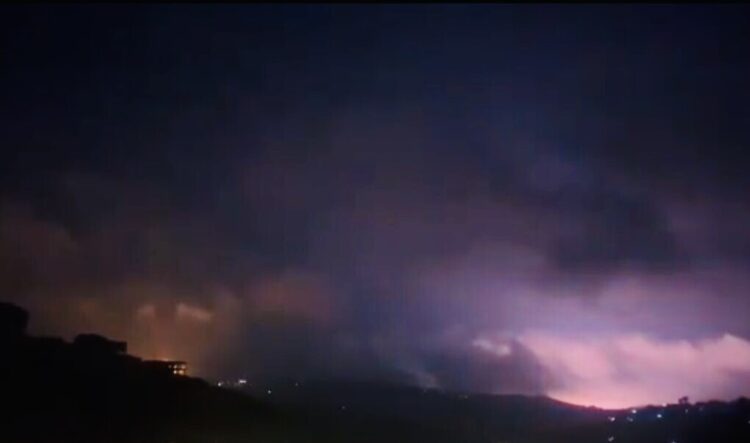
One hundred Israeli aircraft struck 270 targets in Lebanon, destroying a significant number of rocket launchers and killing upwards of six Hezbollah fighters, in what was Israel’s single biggest military operation in Lebanon since the 2006 war.
Israel targeted sites only in southern Lebanon, thereby adhering to the informal “red lines” agreement with Hezbollah and leaving major cities like Beirut, Tyre and Sidon untouched.
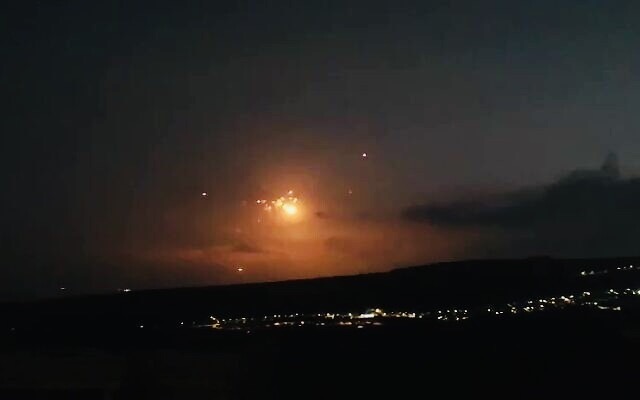
A major blowup was brewing.
On August 24, Israel Defence Forces spokesman Daniel Hagari disclosed that Israel was bracing for a “significant week” following its assassination of Fuad Shukr, Hezbollah’s senior military commander, late last month.
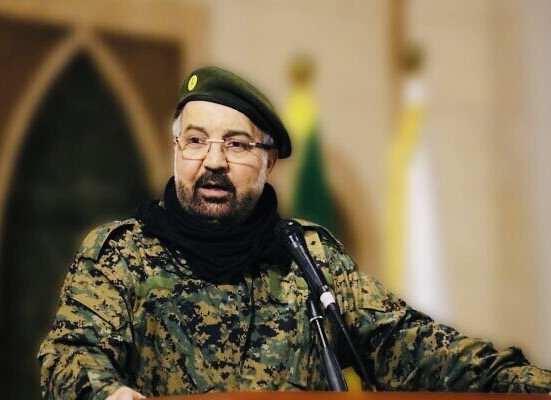
According to Ynet, Hezbollah’s retaliatory attack was expected to materialize “in the coming days” and would not involve Iran, Israel’s arch enemy.
The latest flareup came against the backdrop of an escalation of fighting along the northern border. In the past three weeks, Hezbollah has fired hundreds of rockets and dozens of drones at Israeli military bases and towns, while the Israeli Air Force has carried out reprisal raids as far afield as the Bekaa Valley, a Hezbollah stronghold.
In commenting on Israel’s preemptive strike yesterday, Prime Minister Benjamin Netanyahu said, “Hezbollah tried to attack the State of Israel with rockets and drones. We instructed the Israel Defence Force to carry out a powerful, preemptive strike to eliminate the threat. The IDF destroyed thousands of short-range rockets, and all of them were aimed at harming our citizens and our forces in the Galilee.”
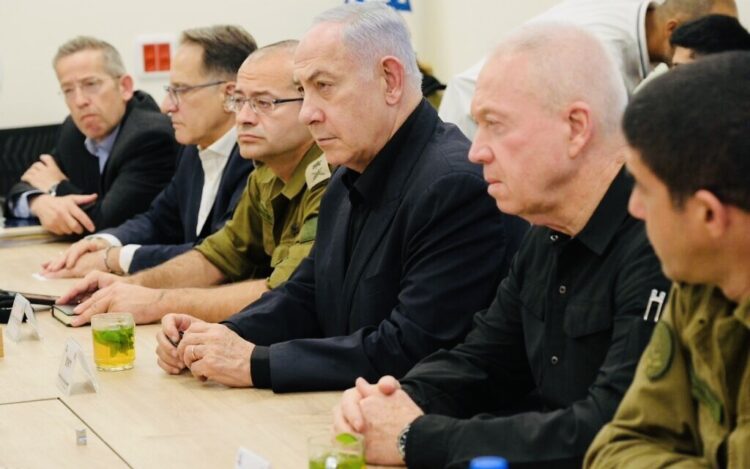
“In addition, the IDF intercepted all the drones that Hezbollah launched at strategic targets in the center of the country,” he added.
Yet Israel’s air strikes are not “the end of the story,” he warned, hinting that further clashes may well occur.
Hezbollah’s reason for launching a barrage of rockets and drones at Israel was to avenge Shukr’s death in Beirut. Residential buildings in Acre were damaged, and a 21-year-old Israeli naval officer was killed by the falling debris of an Iron Dome missile.
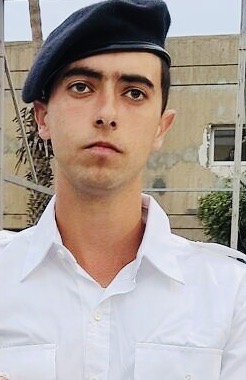
In a speech on August 25, Hezbollah leader Hassan Nasrallah claimed that it had fired more than 320 Katyusha rockets and dozens of drones at eleven military bases in northern and central Israel. Hezbollah tried to hit the Glilot base near Herzliya, the headquarters of the Mossad intelligence agency, and several intelligence units, including Unit 8200.
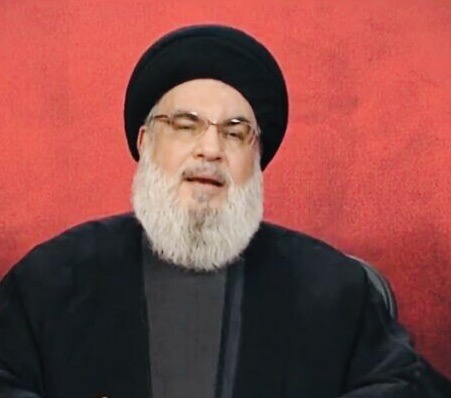
Nasrallah said that Hezbollah’s attack had caused “great disruptions” inside Israel. In fact, it resulted in minor inconveniences. Ben Gurion Airport was closed for about an hour yesterday morning, and dozens of flights to both Tel Aviv and Beirut were cancelled, diverted or postponed. Restrictions were placed on gatherings and educational activities in Tel Aviv and areas northward, but they were lifted in the early afternoon as life got back to normal.
Later, Hezbollah announced it had “completed military operations for the day,” but indicated that more attacks could follow the “first phase.” Nasrallah said that Hezbollah “reserves the right to respond at a later time” if the results of its attack against Glilot are insufficient.
Hezbollah, in a show of tangible support for Hamas, has been firing rockets, anti-tank missiles and drones at Israel since October 8, the day after Hamas terrorists killed roughly 1,200 Israelis and foreign nationals and kidnapped some 250 hostages in southern Israel.
Hezbollah’s entry into the war compelled Israel to evacuate some 60,000 people from an area five kilometers from the Lebanese border. Yesterday, the commander of Israeli forces, General Herzi Halevi, said that Israel is “determined to change the security situation in the north so that the residents of the north can return to their homes safely.”
Hezbollah has said it will lay down its arms only after Israel agrees to a permanent truce and withdraws from the Gaza Strip. But the chances of the Israeli government agreeing to these stringent demands is extremely slim, as the recent hostage/prisoner/ceasefire talks in Cairo indicate.
Which means that Israel will effectively be at war with Hezbollah for the foreseeable future.
In the wake of the latest clashes, Israel and Hezbollah claimed victory.
Israel said it had eliminated thousands of Hezbollah’s rocket launcher barrels. Hezbollah boasted that its rocket and drone barrages had caused considerable damage in northern Israel, a claim that Israel denied.
As the day wore on, both sides sought to deescalate the situation.
Hezbollah announced it had completed the “first stage” of its attack to avenge Shukr’s assassination. Gallant, in a conversation with U.S. Secretary of Defence Lloyd Austin, said they had “discussed the importance of avoiding regional escalation.” Gallant also expressed hopes for a diplomatic solution, but a peaceful resolution of Israel’s conflict with Hezbollah is not on the horizon.
The skirmishes pitting Israel against Hezbollah have led to the deaths of 26 Israeli civilians and 20 soldiers so far.
Until yesterday, Hezbollah had lost 428 operatives in clashes with Israel. Groups affiliated with Hezbollah have reported the loss of 73 members. A Lebanese soldier and dozens of Lebanese civilians also have been killed.
In all likelihood, this war will claim yet more lives.
